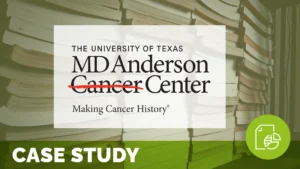You Cannot Manage Perceptions in the Same Way You Manage Outcomes
Published December 4, 2012


Fred Lee, Author, If Disney Ran Your Hospital
In this session, Fred Lee, author of the best-selling healthcare management book, If Disney Ran Your Hospital; 9 ½ Things You Would Do Differently, will explore why outcomes are left-brain and perceptions are right-brain, and how it takes a different skill set to be great at managing and coaching each. Three levels of total patient care will be shared: compassion, courtesy and competence and the enemy of each. Through the use of personal patient stories, Lee will make the case for empathy and its role in healing and will address the question ‘Can compassion be taught?’
Related content
-
Culture & Leadership
A Role Discovered: Exploring Northwell Health’s Patient Experience Structure and Leadership Characteristics
Published November 13, 2024

Examining the evolution of healthcare, leaders in patient experience (PX) have played a pivotal role in shaping a more compassionate and human-centered landscape. This three-part multi-modal descriptive study aimed to investigate shared traits, skills, and characteristics among PX leaders in hospital settings. Employing a transformational leadership self-assessment tool and a guided interview process, recurring themes
Learn more -
Culture & Leadership
Contrasting Patients’ and Healthcare Professionals’ Experience in Hematological Cancer Care Pathway : A Narrative Study
Published April 30, 2025

Hematological cancers represent 10% of cancers diagnosed in Canada. Treatments involve complex care pathways and various modalities as well as the management and monitoring of multiple side effects. There is limited understanding of these pathways from the perspectives of the people living with cancer (PLC) and the healthcare professional (HCP). The aim of this article
Learn more -
Culture & Leadership
Building Diversity and Advocacy in Healthcare Leadership: A Proposed Graduate Program for Patient Experience Excellence
Published December 20, 2024

This case study examines the development of a graduate-level program addressing the need for healthcare professionals skilled in diversity, disparities, and advocacy (DDA) to enhance patient experience. Dr. Susan Lee, University of Texas MD Anderson Cancer Center, initiated the program to integrate DDA into leadership and practice, aligning with her organization’s mission to support equity
Learn more
